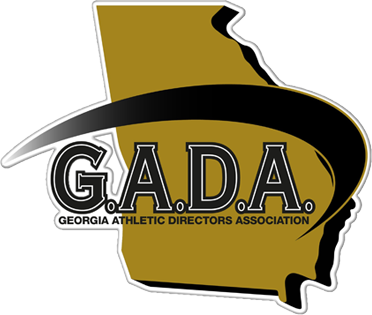In this GADA Today episode, sponsored by Riddell, Dr. Kechia Rowles, CMAA, Athletic Director for Rockdale County Public Schools shares five essential strategies that athletic directors can use to better support their athletic trainers.
This interview snippet covers how to set professional boundaries, protect healthcare environments, manage practice schedules effectively, and celebrate National Athletic Trainer’s Month. Dr. Rowles’ expert insights are invaluable for creating a positive and supportive environment that enhances the well-being of student-athletes and the entire athletic department.
Topics Covered in this Episode Include:
- Establishing Boundaries: This includes establishing specific out-of-office hours during which they should not be contacted, respecting their personal time and preventing burnout. Ensuring that coaches and staff respect these boundaries is crucial for maintaining a healthy work-life balance for athletic trainers.
- Respecting Healthcare Spaces: The athletic training room is a healthcare facility and access to this space should be restricted to authorized personnel only, to protect the privacy of medical records and maintain a secure environment. This measure helps in upholding the professionalism and confidentiality necessary in a healthcare setting.
- Managing Practice Schedules: Coordinating practice and game schedules to ensure that athletic trainers are not overworked is imperative. Dr. Rowles suggests limiting extensive coverage times, especially during holidays and off-season periods, to avoid long working hours that can lead to exhaustion. This consideration helps in maintaining the well-being of the trainers, who play a vital role in athlete care.
- Recognizing National Athletic Trainer’s Month: Celebrating National Athletic Trainer’s Month in March is a way to show appreciation for the hard work and dedication of athletic trainers. Public acknowledgments through social media, school announcements, and other platforms to recognize their contributions to student-athlete safety and health is appreciated and motivating to everyone in the profession.
- Enhancing Collaboration and Support: Including athletic trainers in departmental meetings and communications is extremely important. This inclusion ensures that they are kept informed of schedule changes and other critical information. It also fosters a collaborative environment where trainers feel valued and supported by the entire athletic department.
Dr. Kechia Seabrooks Rowles, CMAA, is the Director of Athletics and Head Athletic Trainer for Rockdale County Public Schools in Conyers, Georgia. With a rich background in sports and athletic administration, Dr. Rowles has dedicated her career to enhancing student-athlete safety and well-being. She holds a Bachelor’s degree in Health Science/Athletic Training from Armstrong Atlantic State University, a Master’s in Exercise Physiology from the University of Alabama at Birmingham, and a Doctorate in Sports Management from the United States Sports Academy.
Dr. Rowles is a Certified Master Athletic Administrator (CMAA) and has played a pivotal role in establishing comprehensive safety measures within her district, ensuring adherence to local, state, and national guidelines. She also serves on the Georgia High School Association (GHSA) Sports Medicine Advisory Committee and has developed initiatives like the RCPS Student Athletic Aide Program to support students interested in sports medicine careers.
Her work extends beyond the field, as she actively participates in professional development and advocates for the academic success of student-athletes. Dr. Rowles’ contributions to the field are recognized through her involvement with the Georgia Regional Sports Council and her efforts to promote inclusivity and excellence in athletic administration



